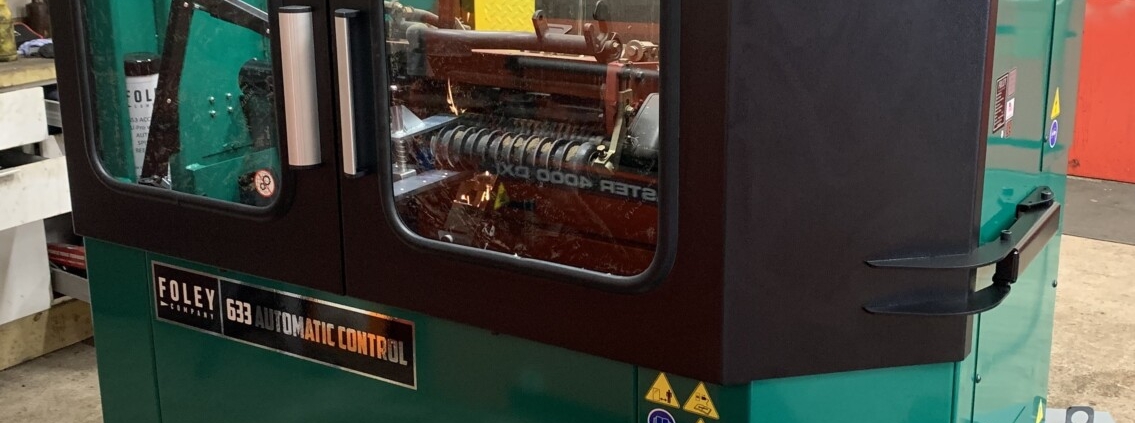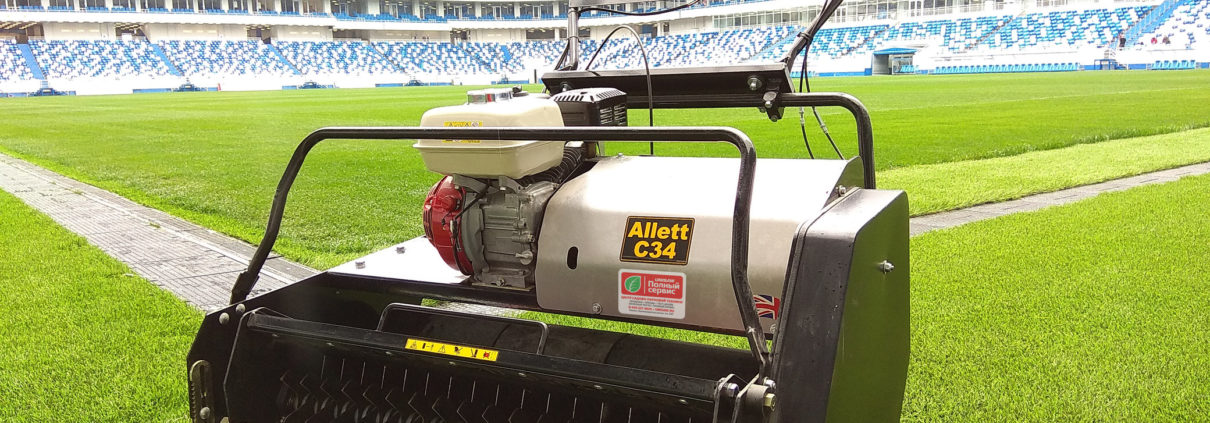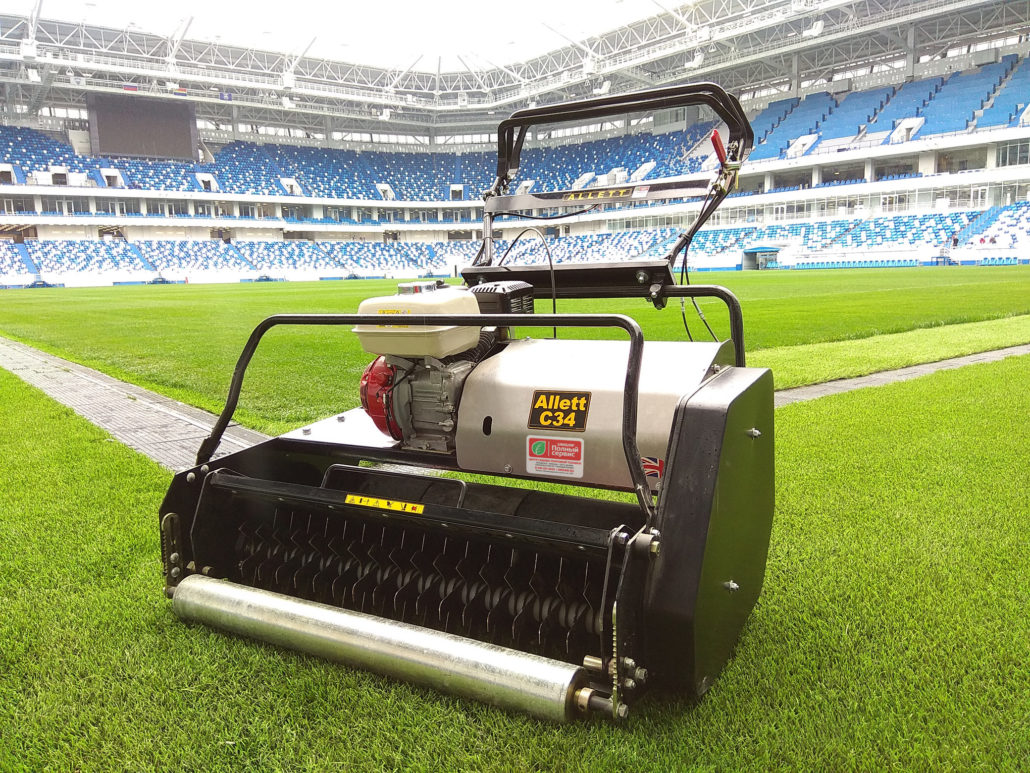Foley Success at Open Championship Venues
Foley Success at Open Championship Venues: There are few greater events in golf that match The Open. For many greenkeepers, it is the pinnacle of their careers, but to make it a success, tireless work goes on behind the scenes to have mowers ready for cutting each day.
When the 151st Open begins in the third week of July, every Toro and John Deere mower used at Royal Liverpool will be ground by a Foley under the expert eye of ProSport UK’s Ian Robson. More than ever, speed and accuracy are crucial during a tournament, and it’s then the 633 ACCU-Pro with ACCU-Touch 3 comes into its own.

Foley Success at Open Championship Venues
The machines come with an automated computer system that provides a step-by-step tutorial for new technicians and a quicker setup and spin grind feature for the more experienced operators. You input the details of the unit you’re working on, and it automatically spin or relief grinds to completion. Pre-programmed spin speeds, relief torque, and in-feeds are only a few of the features found in the ACCU-Touch 3 system that ensures efficiency and guarantees a quality grind with every use.
With Foley grinders at four Open Championship venues, Ian knows the importance of tournament support and the difference it makes. “An Open Championship is a unique event that calls for a team effort to make it a success,” Ian explains. “In my experience, it’s an intricately planned but high-pressure environment, and we’re there to make sure everything runs smoothly.
“We want to ensure every unit that goes on the course is at its best because the quality of cut is so important to turf health and the presentation. Using the ACCU-Pro 633 means we can turn around the units quickly and efficiently while always guaranteeing the best quality, and that is the key thing. Course conditions are the biggest variable during a tournament, and we can very easily adjust our grinding to suit what the course team needs.
“Royal Liverpool has had to wait because of the Open rota being put back a year and the redevelopment of the 17th hole, but the work they’ve put into hosting this Championship will be worth it, and we’re proud to be a part of it.”
Being England’s second oldest seaside links comes with a lot of history. Royal Liverpool was the second English course to host the Open Championship in 1897 and hosted the prestigious competition a further nine times before a 39-year gap between 1967 and 2006 when Tiger Woods won the tournament before Rory McIlroy won his first eight years later in 2014.
The club has far from stood still since then, with their new 17th hole aiming to make a name for itself among golfs standout par-3s. Using the Dee Estuary as a backdrop, the well-guarded elevated green could well be a decision maker on who lifts the Claret Jug along with the redesigned over 600-yard par-5 18th.
Open Quality
Royal Liverpool is the second successive Open host to use Foley, following St Andrews, who used the American-made machines during the 150th Open.
Customer support ranks highly at the home of golf, with the personal touch ranking as highly as the ability to provide solutions for Head of Maintenance Lani Togi.
“When it comes to buying machines, it’s not always about the cost of the item; it’s the personal side of things as well,” he said. “You buy from people, and we’ve worked with Ian for many years, and we know we can rely on his backup service.
“One of the biggest things that’s helped us get the results is the Borazon stone we have for the 673 bottom blade grinder. The new Toro E-Reels use a tungsten mixture that makes them very hard, and that stone really cuts it in well. That saves us a lot of problems because previously we would have had to sharpen them again, but now we get it done the first time around.”
For the latest industry news visit turfmatters.co.uk/news
Get all of the big headlines, pictures, opinions and videos on stories that matter to you.
Follow us on Twitter and Instagram for fun, fresh and engaging content.
You can also find us on Facebook for more of your must-see news, features, videos and pictures from Turf Matters.











